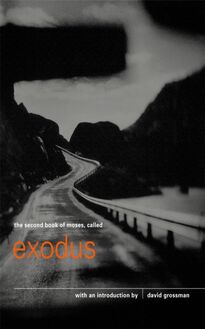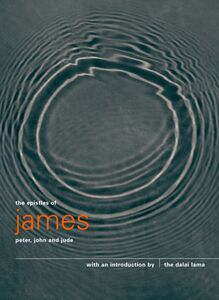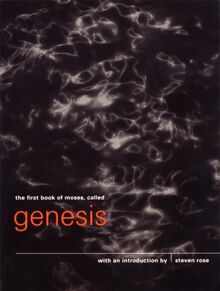-
 Univers
Univers
-
 Ebooks
Ebooks
-
 Livres audio
Livres audio
-
 Presse
Presse
-
 Podcasts
Podcasts
-
 BD
BD
-
 Documents
Documents
-
- Cours
- Révisions
- Ressources pédagogiques
- Sciences de l’éducation
- Manuels scolaires
- Langues
- Travaux de classe
- Annales de BEP
- Etudes supérieures
- Maternelle et primaire
- Fiches de lecture
- Orientation scolaire
- Méthodologie
- Corrigés de devoir
- Annales d’examens et concours
- Annales du bac
- Annales du brevet
- Rapports de stage
La lecture à portée de main
Vous pourrez modifier la taille du texte de cet ouvrage
Découvre YouScribe en t'inscrivant gratuitement
Je m'inscrisDécouvre YouScribe en t'inscrivant gratuitement
Je m'inscrisEn savoir plus
Vous pourrez modifier la taille du texte de cet ouvrage
En savoir plus

Description
Sujets
Informations
| Publié par | Canongate Books |
| Date de parution | 01 janvier 1999 |
| Nombre de lectures | 0 |
| EAN13 | 9780857860941 |
| Langue | English |
Informations légales : prix de location à la page 0,0100€. Cette information est donnée uniquement à titre indicatif conformément à la législation en vigueur.
Extrait
Contents
Title Page a note about pocket canons introduction by doris lessing ecclesiastes or, the preacher 2 3 4 5 6 7 8 9 10 11 12 titles in the series About the Author Copyright
a note about pocket canons
The Authorised King James Version of the Bible, translated between 1603–11, coincided with an extraordinary flowering of English literature. This version, more than any other, and possibly more than any other work in history, has had an influence in shaping the language we speak and write today. Presenting individual books from the Bible as separate volumes, as they were originally conceived, encourages the reader to approach them as literary works in their own right.
The first twelve books in this series encompass categories as diverse as history, fiction, philosophy, love poetry and law. Each Pocket Canon also has its own introduction, specially commissioned from an impressive range of writers, which provides a personal interpretation of the text and explores its contemporary relevance.
introduction by doris lessing
It is something of an undertaking, to write even a few words about a text that has inspired mountains of exegetics, commentaries, analyses, over so many centuries, and in so many languages: and you have not read one word. Immodesty, it could be called, and when I allow myself to think about my audacity, I do feel a little breeze of elation which, considered, turns out to be a mild attack of panic. But most readers will be in the same innocent condition, if they have read Ecclesi astes at all. Once, and not so long ago, everybody in Britain and for that matter everyone in the Christian world, was subjected to that obligation, going to church, where every Sunday was heard the thundering magnificence of this prose, and so, ever after, they would have been able to identify the origin of phrases and sayings which are as much a part of our language as Shakespeare. These days, if someone hears, ‘There is a time to be born and a time to die …’ they probably do think it is Shakespeare, since the Bible these days is the experience of so few. Ecclesiastes? Who’s he! But an innocent, even an ignorant, reader may discover a good deal by using simple observation.
The book begins with a description, ‘The words of the Preacher, the son of David, king in Jerusalem.’ That is to say, the words have been collected from notes, or memories, of the Preacher, by disciples or pupils or friends, and made into a whole: probably after he was dead. He did not himself make this book, and it is tempting to remember that he said, ‘Of the making of books there is no end, and in much study is a weariness of the flesh.’ Other great teachers, such as Socrates, Jesus, Confucius, many others, refrained from making books and testaments, leaving this task to other people. Why did they not see the necessity to preserve their ‘image’ or to edit a testament to make sure that posterity would see them as they saw themselves? Was the reason that they knew their influence – what they said, how they lived – had impressed their pupils and their contemporaries so strongly in their lifetimes that written records were superfluous? I think it is worthwhile to at least consider this possibility.
It is not until the twelfth verse that we hear his own words, with ‘I, the Preacher, was king over Israel, in Jerusalem.’ He tells us he devoted himself to the acquisition of wisdom, which is the task given to the sons of men by God, but there was pain in it. ‘For in much wisdom there is much grief; and he that increaseth knowledge increaseth sorrow.’ So then he decided to experience pleasure and the satisfactions of worldly accomplishment. He built houses and planted gardens and vineyards and orchards; he made pools and streams; he acquired male and female servants and all kinds of possessions, and silver and gold, and male and female singers. Whatever he had a fancy to have – so he tells us – he got; he was like the people now who decide that they are going to have a good time and not care about serious things. But then, having done all that, he had a good long look at his life and his property and his riches and knew it was all vanity and vexation of spirit (vanity in the sense of futility, illusion) and that happiness is not to be found in pleasure and that wisdom is better – making a full circle, one might say, if it were not that even a casual reading reveals that verse by verse this is contradictory stuff, a confusing message – if he ever intended what he said to be considered as a message. What we have here is sayings from different occasions, and different contexts, and with different people. There is a deep and terrible need in us all to systematise and make order, and perhaps it is helpful to imagine this material in a pre-book stage, when it was scribbled notes made when listening to the Preacher; or what happened when pupils met after he was dead: ‘What do you remember of him? And you? And you?’
What unites the book, is precisely that this is some of the most wonderful English prose ever written. My father, young at a time when not to accept church religion was to invite persecution and social ostracism, said that Sundays, when he had to go to church three times, and also to Sunday school, was like a great black hole every week, but later said that it was listening to the prose of the Bible and the prayer book that taught him to love language and good literature. Generations of writers have been influenced by the rhythms of the Bible, which may be observed in the prose of the best of them – as well as the worst – and we are very much the poorer because the Bible is no longer a book to be found in every home, and heard every week.
From the very first verse of Ecclesiastes you are carried along on a running tide of sound, incantatory, almost hypnotic, and it is easy to imagine yourself sitting among this man’s pupils, listening to – for instance, ‘Remember now thy creator in the days of thy youth, while the evil days come not, nor the years draw nigh when thou shalt say, I have no pleasure in them.’ Your ears are entranced, but at the same time you are very much alert. You have to be old to understand that verse, to see your whole life, from early heedlessness to present regret for heedlessness; you find yourself drifting off into speculation. Was this particular admonition addressed to young people, to remind them that old age will come for them too? Or reserved for grey heads who would hear it with the ears of experience? Or flung out in an assembly, to be caught by anyone who could – who had the ears to hear, as Jesus put it.
Towards the end, verse 9 of chapter 12, suddenly it is not his voice, not ‘I’ speaking, and we are back to description; ‘… because the preacher was wise, he still taught the people knowledge; yea, he gave good heed, and sought out, and set in order many proverbs.’ That is how one contributor to the book saw what Ecclesiastes was doing. And, yet again, we are reading a document that to us is ancient, but it records people who saw themselves as successors in a long line, stretching back into their antiquity.
Between the man, Ecclesiastes, and ourselves, are many veils. One is translation. Over the exact meaning of a word or phrase scholars have laboured and many sermons have been delivered in churches. That word ‘Preacher’ for instance. In what other ways could the original have been translated? ‘Preacher’ is so much a concept from organised Christianity, which spawned preachers by the thousand men (and now women) standing in pulpits to expound their views of life to a congregation, and their quite amazing intimacy with God’s thinking. Should that ‘Preacher’ have been ‘Teacher’? – a very different thing.
Another barrier is the nature of the people who recorded the words, or who remembered them. We all know that what we say to a friend will be filtered through the character and experience of that person, and it is safe to assume that Ecclesiastes’ pupils were not on the same level as he was, any more that Jesus’s disciples were on his level, and that they, like us, had to strain to understand a nobility of mind that was beyond their ordinary selves. There is a little cry of despair in this text, the tale of a small city, besieged by a great king; a poor wise man saved the city, and yet no one remembered the poor man. ‘Wisdom is better than strength’ is the conclusion, ‘nevertheless, the poor man’s wisdom is despised and his words not heard.’
There is an interesting deduction or two to be made. This man was the son of David, that is to say, of the Royal House of David, at a time when kings were considered to be God-chosen and God-inspired. The word ‘ecclesiastic’ now means a clergyman, or describes a clergyman, or what appertains to churches. There is a little encapsulated history here: this ‘Preacher’ was no churchman, and nowhere does he mention a church: thus do the living springs of knowledge, of wisdom, become captured by institutions, and by churches of various kinds.
ecclesiastes or, the preacher
The words of the Preacher, the son of David, king in Jerusalem.
2 ‘Vanity of vanities,’ saith the Preacher,
‘Vanity of vanities; all is vanity.
3 What profit hath a man of all his labour
which he taketh under the sun?
4 One generation passeth away,
and another generation cometh,
but the earth abideth for ever.
5 The sun also ariseth, and the sun goeth down,
and hasteth to his place where he arose.
6 The wind goeth toward the south,
and turneth about unto the north;
it whirleth about continually,
and the wind returneth again
according to his circuits.
7 All the rivers run into the sea; yet the sea is not full;
unto the place from whence the rivers come,
thither they return again.
8 All things are full of labour; man cannot utter it.
The eye is not satisfied with seeing,
nor the ear filled with hearing.
9 The thin
-
 Univers
Univers
-
 Ebooks
Ebooks
-
 Livres audio
Livres audio
-
 Presse
Presse
-
 Podcasts
Podcasts
-
 BD
BD
-
 Documents
Documents
-
Jeunesse
-
Littérature
-
Ressources professionnelles
-
Santé et bien-être
-
Savoirs
-
Education
-
Loisirs et hobbies
-
Art, musique et cinéma
-
Actualité et débat de société
-
Jeunesse
-
Littérature
-
Ressources professionnelles
-
Santé et bien-être
-
Savoirs
-
Education
-
Loisirs et hobbies
-
Art, musique et cinéma
-
Actualité et débat de société
-
Actualités
-
Lifestyle
-
Presse jeunesse
-
Presse professionnelle
-
Pratique
-
Presse sportive
-
Presse internationale
-
Culture & Médias
-
Action et Aventures
-
Science-fiction et Fantasy
-
Société
-
Jeunesse
-
Littérature
-
Ressources professionnelles
-
Santé et bien-être
-
Savoirs
-
Education
-
Loisirs et hobbies
-
Art, musique et cinéma
-
Actualité et débat de société
- Cours
- Révisions
- Ressources pédagogiques
- Sciences de l’éducation
- Manuels scolaires
- Langues
- Travaux de classe
- Annales de BEP
- Etudes supérieures
- Maternelle et primaire
- Fiches de lecture
- Orientation scolaire
- Méthodologie
- Corrigés de devoir
- Annales d’examens et concours
- Annales du bac
- Annales du brevet
- Rapports de stage




















